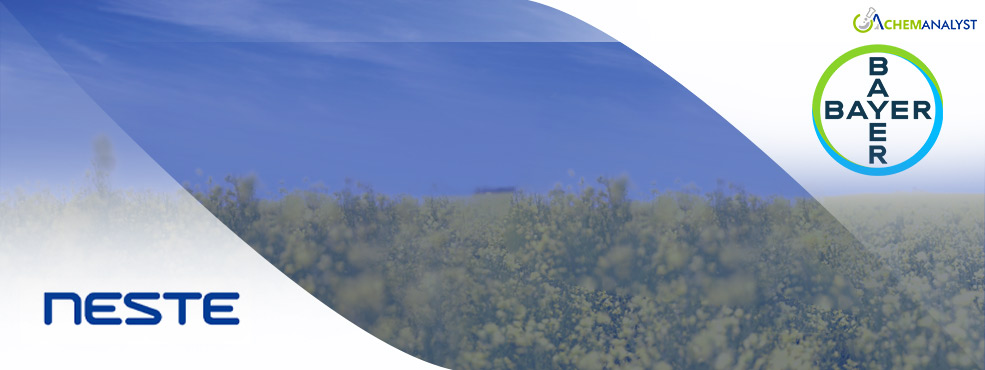Welcome To ChemAnalyst

Neste, a leading producer of renewable diesel and sustainable aviation fuel, and Bayer, a global life sciences company specializing in healthcare and agriculture, have announced a collaboration to develop a sustainable winter canola ecosystem in the United States. The partnership, formalized through a Memorandum of Understanding (MoU), was announced on January 8. It aims to establish a robust value chain for winter canola, a crop with significant potential for producing renewable fuels and promoting regenerative agriculture.
The collaboration will focus on identifying key partners, jointly developing the value chain, and scaling winter canola production as a sustainable raw material for Neste's renewable products. This initiative aligns with Neste's ongoing efforts to diversify its raw material pool beyond waste and residue materials, exploring innovative options like novel vegetable oils derived from regenerative farming practices.
Regenerative agriculture emphasizes practices that enhance soil health, sequester carbon, promote biodiversity, and reduce agricultural emissions while simultaneously boosting farm productivity. Winter canola, when integrated into cropping systems as a rotational crop and managed with regenerative techniques, offers numerous environmental and economic benefits.
The use of winter canola as a rotational crop within regenerative agriculture systems can significantly improve soil health and carbon sequestration, leading to more sustainable farming practices. The resulting lower carbon intensity raw material can then be processed into renewable fuels, including sustainable aviation fuel and renewable diesel. These biofuels offer substantial reductions in greenhouse gas emissions compared to traditional fossil fuels throughout their lifecycle, contributing to a more sustainable future.
"This collaboration with Bayer aligns with Neste’s efforts to develop regenerative agriculture concepts,” stated Artturi Mikkola, Senior Vice President, Feedstock Sourcing & Trading at Neste. He highlighted the potential of winter canola as a novel rotational crop, fitting seamlessly into Neste’s novel vegetable oil strategy. Mikkola emphasized that winter canola not only promises lower carbon intensity raw material but also delivers additional environmental benefits to cropping systems and creates new income streams for farmers.
Bayer’s commitment to supporting farmers in producing low-carbon feedstocks is a key driver of this partnership. Frank Terhorst, Head of Strategy & Sustainability for Bayer’s Crop Science Division, acknowledged the crucial role of renewable fuels in decarbonizing transportation and energy sectors. He noted that global targets are shaping biofuel markets and accelerating the demand for biomass-based feedstocks. Bayer’s investment in new crops like winter canola and its advancements in sustainable cropping systems underscore its dedication to enabling farmers to meet this growing demand.
We use cookies to deliver the best possible experience on our website. To learn more, visit our Privacy Policy. By continuing to use this site or by closing this box, you consent to our use of cookies. More info.
